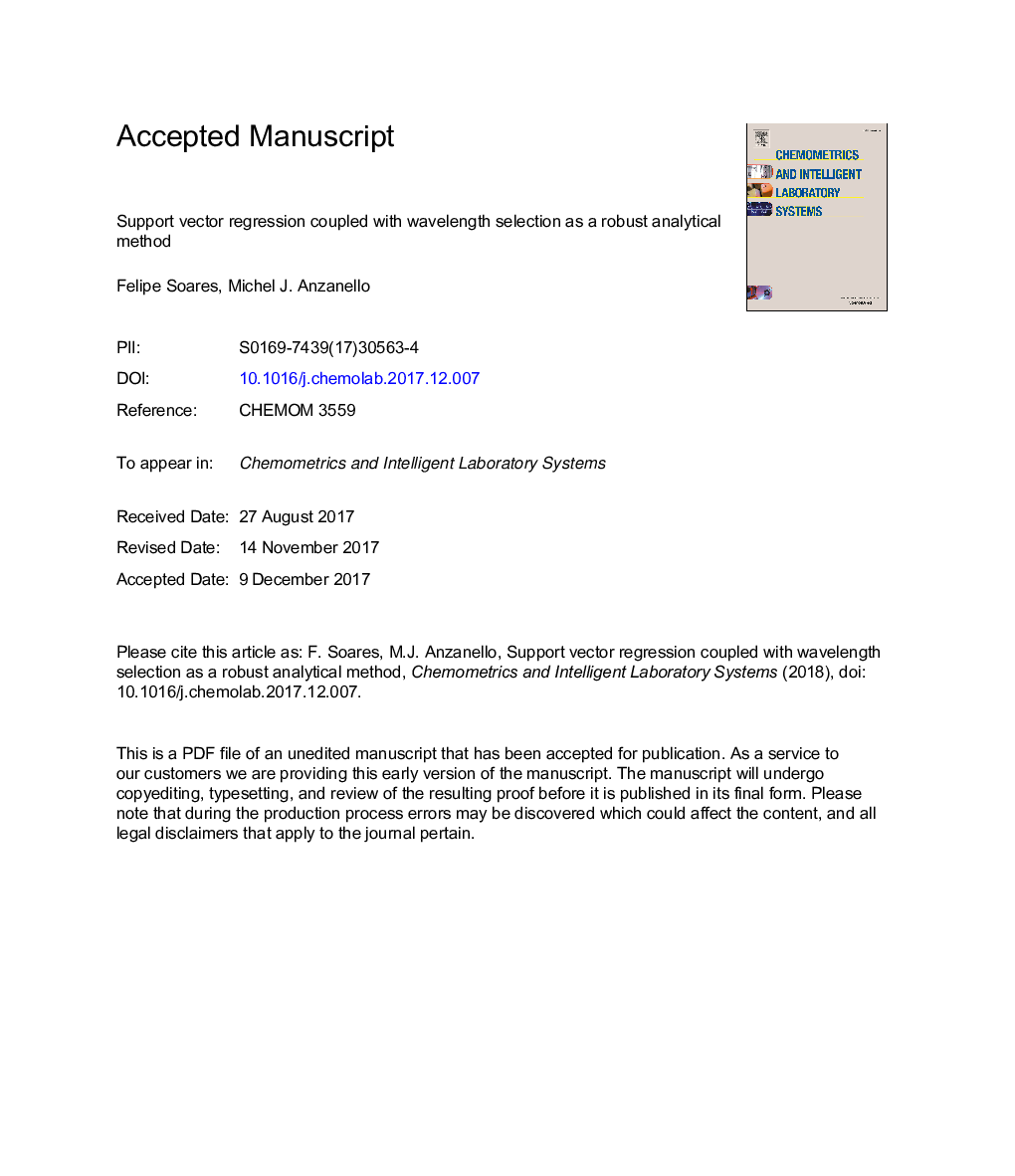| Article ID | Journal | Published Year | Pages | File Type |
|---|---|---|---|---|
| 7562362 | Chemometrics and Intelligent Laboratory Systems | 2018 | 25 Pages |
Abstract
This paper assesses the support vector regression (SVR) as a robust alternative to partial least squares (PLS) in multivariate calibration using twelve public domain NIR spectroscopy datasets. It also proposes the use of the support vector regression - recursive feature elimination (SVR-RFE) algorithm to select the most informative wavelengths for SVR models. Models based on full spectra were built using SVR and PLS, while wavelength selection methods were carried out using SVR-RFE, interval PLS (iPLS), backward interval PLS (biPLS), synergy interval PLS (siPLS), and successive projection algorithm PLS (SPA-PLS). The prediction performance of tested methods was measured by means of the root mean squared error (RMSE), index of agreement (d-index) and R2 on the test set. SVR-based models yielded the best results in 8 out of 12 datasets, 4 of them using full spectra and 4 relying on SVR-RFE selected wavelengths. Statistical comparison was carried out for the wavelength selection algorithms using Friedman test, which pointed the SVR-RFE as a competitive technique when compared to the other algorithms. This study revealed SVR as a robust alternative to PLS, especially when SVR-RFE is employed for wavelength selection.
Related Topics
Physical Sciences and Engineering
Chemistry
Analytical Chemistry
Authors
Felipe Soares, Michel J. Anzanello,
